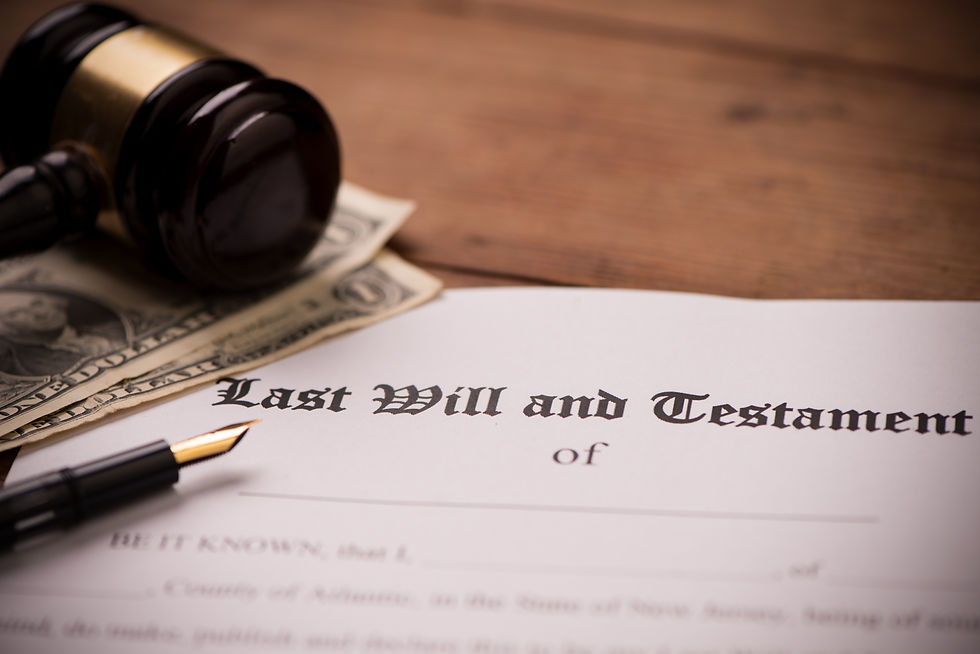Delaware’s Equine Activity Liability Law
- Admin
- Jul 10, 2018
- 3 min read
Updated: Jul 9, 2020
By Kelly Nuckolls
This post is not legal advice. See here for the site’s reposting policy.
I am writing about some of Delaware’s agricultural laws in my next few posts. Read more about ALEI’s partnership with the University of Delaware here. Delaware is one of several states with an equine activity liability law. These laws differ, however, depending on what state you are in; today’s post will focus on the specifics of Delaware’s equine activity liability law.
What Does Delaware’s Equine Activity Liability Law Cover?
An equine activity liability law prevents certain types of legal claims based on an injury, damages, or even death caused by an equine activity from prevailing in court. The legal claim will be dismissed if all of the law’s requirements are met.
The law requires that the injury, loss, damage, or death of a participant result from the inherent risks of equine activities. So first, the claim must arise from an equine activity for the law to apply. An equine activity includes fairs, shows, competitions, performances, and parades, training or teaching activities, boarding, riding, inspecting, or evaluating another’s horse, informal or formal rides, trips, hunts, etc., and placing or replacing horseshoes. The activity must also be an “inherent risk” of these equine activities, which means the dangers or conditions are part of partaking in these activities. For example, if a horse is startled by a loud noise, and runs, jumps, or moves too quickly and knocks off a rider, this is an inherent risk associated with equine activities because horses typically have unpredictable reactions to sounds.
Equine professionals (those receiving compensation for renting an equine, providing lessons, or renting equipment or tack) are required to post warning signs and place the following language on any written contract for their services: “WARNING. Under Delaware law, an equine professional is not liable for an injury to or the death of a participant in equine activities resulting from the inherent risks of equine activities, pursuant to 10 Delaware Code § 8140.” Equine professionals must also read and follow certain signage requirements.
The Delaware law applies to injuries sustained by any “participant,” whether or not they are a professional or amateur, and whether or not they paid for the activity. For example, if your friend who did not pay you to ride your horse is injured, the law still provides you with liability protections if all the other requirements are met.
What Is Not Covered By Delaware’s Equine Activity Liability Law?
The law does not apply to several specific actions and products liability and trespass claims, as mentioned below; you must meet all these requirements and the action or claim cannot fall under one of the law’s exceptions. Whether you are an equine activity sponsor or professional, you cannot use the equine activity liability law and could be held liable if:
· You knew or should have known the equipment or tack that caused the injury was faulty;
· You failed to make a reasonable and prudent effort to verify the participant’s ability to safely manage and control the equine based on a description of his or her experiences. For example, if a participant told you they had only ridden and handled a horse one other time, and you fail to provide them with the necessary instruction to safely handle the horse, you may be liable still for any injury;
· You knew or should have known about a dangerous condition on the land or facilities and did not post signs warning participants about this danger;
· You acted or failed to act in a way either intentionally or recklessly to prevent an injury. If your conduct is willful and wanton, meaning you knew the conduct will probably result in an injury, you will probably be liable.
· You intentionally injure the participant.
The equine activity liability law also does not apply to product liability or trespass claims. Product liability claims are brought against a manufacturer or seller of a defective product which injured the purchaser. Trespass occurs when you or something under your control enters onto another’s property without permission. The equine activity liability law does not prevent these two legal claims from succeeding in court.
The law will not apply if your equine causes injury to a person not partaking in an equine activity. For example, a Delaware court held the equine activity liability law did not apply when a child was helping her friend with chores, and was kicked by a horse and injured. This is because the child was not partaking in an “equine activity” under the law; the horse’s owners could still be held liable for the injury.
The law also does not apply to the horse racing industry.
Conclusion
Overall, Delaware’s equine activity liability law provides protection to anyone who meets the law’s requirements, but several exceptions could still leave you liable for an equine related injury or accident. Anyone in the equine business should note these exceptions.




Comments